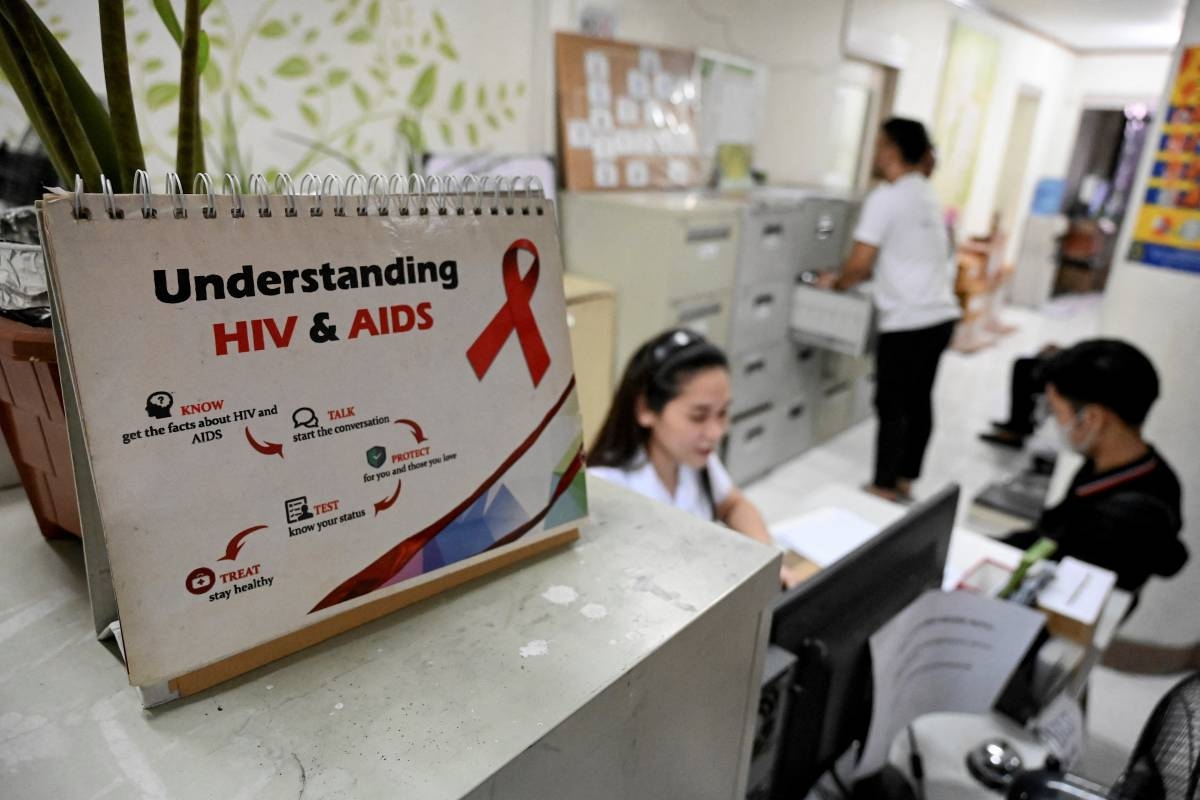MANILA, Philippines: HIV infections are soaring in the Philippines, with experts attributing the spread of the virus to online dating, inadequate sex education, and conservative attitudes prevalent in the deeply religious country.
Although less than one percent of the country’s population of over 110 million people have been diagnosed with HIV, UN data reveals that the Philippines has one of the world’s fastest-growing epidemics.
Philippine health officials are alarmed by the accelerating number of people testing positive for HIV each year and warn that the caseload could more than double to over 400,000 by 2030.
The majority of new infections occur among men having sex with men and transgender women, with a growing number of cases involving teenagers.
“It’s alarming because it shows that we’re not yet controlling the epidemic,” said Van Phillip Baton, an adviser for the Joint United Nations Programme on HIV/AIDS (UNAIDS) in the Philippines. Baton emphasized that if action is not taken, the virus could spread to the general population.
Experts point to social media and online dating sites as contributors to the rise in infections over the past decade. These platforms have made it easier for people to find sexual partners, increasing the likelihood of transmission.
However, despite increased sexual activity, particularly since the lifting of Covid-19 restrictions, there has not been a corresponding increase in the use of condoms or pre-exposure prophylaxis drugs to prevent infection, according to Baton.
Ignorance plays a significant role in the spread of HIV. A sexual health study conducted by the University of the Philippines’ Population Institute in 2021 revealed that more than a third of young Filipinos aged 15 to 24 do not believe that using condoms can reduce the risk of acquiring HIV. Additionally, the proportion of young Filipinos who are aware of HIV and AIDS has fallen to 76 percent, the lowest level since 1994.
“This indicates the need for greater dissemination of information to correct the perspectives of young people on HIV/AIDS,” said Vicente Jurlano, a professor at the Population Institute.
In 2013, a family planning law was implemented in the Philippines after years of opposition from the Catholic Church. The law mandated that government health centers distribute free condoms and included a provision for sex education in schools. However, individuals under 18 years old require parental permission to receive condoms.
Furthermore, the education department only began implementing “comprehensive sexuality education” in 2018 due to legal delays, with the primary focus on preventing teenage pregnancy. Rosalie Masilang of the department’s curriculum bureau stated that HIV is included in sex education, and students are informed about condoms, but they are not taught how to use them.
It is worth noting that many schools still do not allow discussions on condoms or sex, hindering comprehensive education on HIV prevention.
In conclusion, the rising HIV infections in the Philippines can be attributed to various factors, including the influence of social media and online dating, inadequate sex education, and conservative attitudes. To combat the epidemic, there is a need for increased awareness, comprehensive sex education, and access to preventive measures such as condoms and pre-exposure prophylaxis drugs. Addressing these challenges will require collaboration between government agencies, educational institutions, and community organizations to ensure the health and well-being of the Filipino population.
Source: The Manila Times







